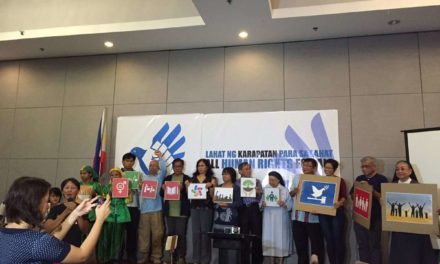As the Philippines—considered one of the countries most affected by climate change—braces for the onslaught of the typhoon season, a new report launched today claims that a scheme supposed to mitigate climate change is in fact doing more to
exacerbate it.
Research by international think-tank Focus on the Global South reveals that billions of pesos in funds from the Clean Development Mechanism (CDM) are flowing to some of the Philippines’ largest corporations involved in extractive, fossil fuel-intensive industries that contribute heavily to climate change—all while allowing developed countries to exceed their greenhouse gas emissions caps.
Entitled Costly, Dirty, Money-Making Schemes: The Clean Development Mechanism Projects in the Philippines, the report was authored by Herbert Docena, a former researcher at Focus on the Global South who is currently pursuing a PhD at the University of California, Berkeley.
Among the scheme’s main beneficiaries in the Philippines, the report found, are some of the richest individuals in the country, with stakes in such high carbon emitting businesses as large-scale mining, coal and diesel power generation, factory farming, and other “dirty” economic activities.
Rewarding polluters
Overseen by the United Nations, the Clean Development Mechanism is currently a central and increasingly controversial component of the international community’s attempt to respond to climate change.
The scheme allows industrialized countries to overshoot their emissions limits as long as they buy so-called “emissions reductions units” from CDM projects that supposedly reduce emissions in developing countries.
According to the UN CDM board, 32 such CDM projects in the Philippines have been registered and 45 projects were undergoing registration as of June 2009. They are expected to earn between ₱13 billion to ₱40 billion for the duration of their project lives—or about thrice the budget of the Department of Environment and Natural Resources.
Based on its evaluation of the nature of the projects and the corporate backgrounds of their developers, Focus found that most of the CDM money will fund some of the very practices that contribute to climate change, including land filling, factory farming, and incineration. Cheaper and more environmentally sound practices such as waste segregation, composting, and recycling, as well as sustainable agriculture, are marginalized.
Retarding green governance
Even as it rewards polluters and “dirty” industries, the CDM may also be undermining the government’s willingness and ability to improve its own environmental regulatory capacities. A basic design flaw of the scheme, the report points out, is that a country that has inadequate and poorly enforced environmental laws can earn more from the scheme than a country with good, well enforced laws.
This is because CDM project developers can more easily justify their claims to “reduce” emissions by showing that the government is unable or unwilling to play its role in enforcing said reductions. And with the government itself directly getting a share of some of the CDM projects’ revenues, the scheme makes government failure financially rewarding.
Perverse incentives
The report argues that this leads to a situation of perverse incentives as highlighted by a landfill gas-to-energy project in Montalban, the largest-earning CDM project to date.
The 2001 Solid Waste Management Act mandates local government units to enforce garbage segregation, recycling and composting. As a waste-to-energy project, however, the Montalban landfill gas project requires huge amounts of garbage to operate—something that can only be guaranteed by not segregating, recycling, and composting garbage. In other words, the only way the project can earn CDM revenues is for the government not to enforce the law.
This non-implementation of the law is precisely what the project invokes in its CDM application documents to justify why it deserves CDM revenues.
Expected to generate around ₱3 billion to ₱11 billion in revenues, the project is being developed by a corporation linked to the influential Zamora family, which owns the Philippines’ largest nickel mining company, with controversial mining operations all over the country.
A share of the project’s revenues goes to the Montalban local government—the very government unit that is supposed to enforce the Solid Waste Management law.
Questionable benefits
Other principal CDM beneficiaries include key players in the Philippine economy, such as the Tans, the Lopezes and the Aboitizes, whose conglomerates are heavily invested in fossil fuel and other extractive businesses. Instead of encouraging these conglomerates to transition toward clean technologies, the report fears that, over-all, CDM revenues may in fact be helping them deepen and expand their investments in environmentally harmful sectors.
“Rather than pushing the government and empowering communities to embark on a just transition towards a more sustainable path,” the report concludes, “the CDM is rewarding government ineptitude and enriching the very agents that contribute to climate change—while allowing rich countries to continue avoiding the reductions necessary to mitigate climate change.”
Though the CDM scheme rakes in billions of pesos in revenues for a few companies, the report points out that these putative benefits must be assessed in light of the much larger negative consequences of climate change. “If the scheme is exacerbating rather than mitigating climate change, then the losers may well be those that have been and will be affected by the increasing severity of droughts, typhoons, and other extreme weather events caused by climate change,” Focus on the Global South warned. – FOP








